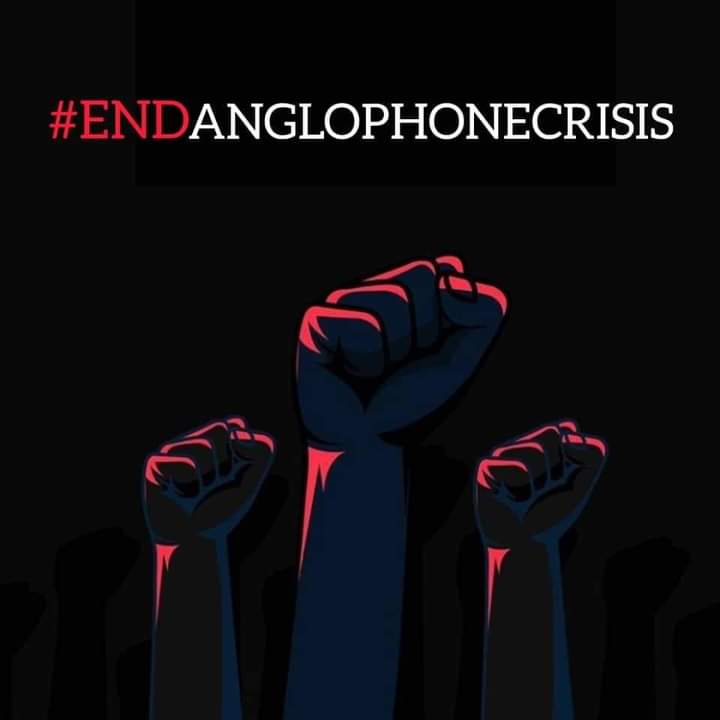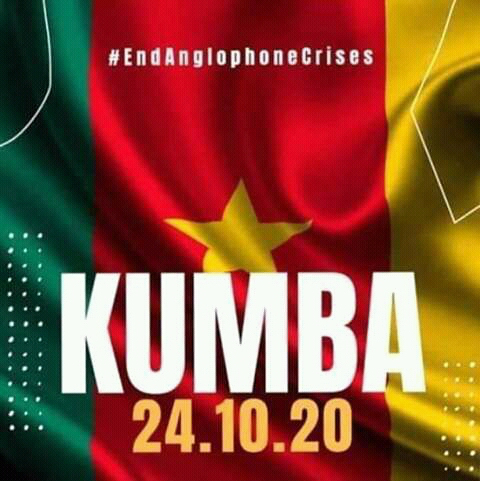As a response to the killing of schoolchildren in the town of Kumba in the Southwestern part of Cameroon on the 24th of October, slam artist Faithfull and reporter Wainwain Ayumchua wrote down their thoughts.
Due to security reasons, Wainwain Ayumchua is a pseudonym. The real name of the reporter is known by our editors.
Author: Faithfull
[disclaimer]Indignant.
I admit I’m tired.
It is no longer enough, but we must ask ourselves just one question: who really benefits from this war? When the Cameroonian people and their future is in the crossfire. Yes, I’m just a small observer, a simple artist, the kind whose opinion doesn’t count on television and for 4 years now, every Sunday, I’ve been amused to see that politicians are invited to give their opinions as a solution to the Anglophone crisis.
It is very dishonest since each one comes to defend his chapel and contributes in one way or another to horrors like those of yesterday. We need neutral people on our television who will share their ideas to solve this problem without accusing anyone to finally put an end to this crisis which is of no use to anyone. Let’s say “no” to the partisan analyses of our policies that poison this war. Everyone wants to say it’s everyone’s fault. No, we are all to blame, but even more so those who have the weapons.
For my part, I will tell you where the bottom hurts. Yes, I assure you I am very happy that a so-called commando leader of the Ambazonians was killed, but was it useful to make propaganda? Showing a lifeless body in the middle of a crossroad, I saw several media relaying this news of a lifeless body in the middle of a crossroad and I knew that he was going to have a riposte in the future, but without considering that they were going to take revenge on our children. You see, there are no winners or losers in a war, especially when the innocent become a target. The real war is won ideologically, and to have a fair ideological balance we must try to understand why the one who loved yesterday has become so inhuman. Yes, there are reasons but they will never die by fire and I know that every time a Cameroonian dies because of this crisis the hatred grows in one of the camps.

Auteur: Wainwain Ayumchua
The War that consumes its own Children: Kumba School Children Massacres
On 01 October 2020, Ambazonian forces celebrated the anniversary of their independence in different localities in Anglophone Cameroon incognito. This was shown on the social media much to the chagrin of the Cameroon forces and government. Most of the population stayed in-doors and refused to go to work as a result of the fear of reprisals from the military of the Cameroon government. Some have taken the day to be so sacrosanct that they preferred to stay indoors in what has become so fashionable in Anglophone Cameroon in what they called “lockdown” or kontri Sunday-all referring to no business activity in town. The celebration was not so special as it has been going on but in a low gear in the last decades of the 20thCentury. Yet since 2016 and more precisely in 2017, the Anglophone youths and later men and women have engaged in a protracted war with hit and run tactics; guerilla tactics.
On Saturday 24 October 2020, news went viral on the social media, showing the massacre of ten students or so speculated to be committed by the armed separatist fighters. Armed separatist fighters are mostly the militia fighting for the restoration of a utopic country which they call Ambazonia. The calendar in the Anglophone Cameroon has changed. The week begins on Tuesday and ends on Saturday because the Ambazonian forces have imposed a lockdown on Mondays known as Ghost towns so students went to study on a Saturday. At least eight children were killed and a dozen wounded after attackers stormed a school in southwestern Cameroon with guns and machetes, the United Nations said.
Eyewitnesses recounts that as usual the separatists arrived on motorbikes and in civilian clothes, the men attacked the Mother Francisca International Bilingual Academy in the city of Kumba, in the country’s Southwest Region, at around midday on Saturday. There was no immediate claim of responsibility for the attack, described by the UN as “the worst atrocity” since the resumption of the school year earlier this month. It was not clear if the attack was linked to a continuing struggle between government forces and armed groups in the English-speaking west seeking to form a breakaway state. “At least eight children were killed as a result of gunshots and attack with machetes. Another twelve were wounded and taken to local hospitals,” the UN’s Office for the Coordination of Humanitarian Affairs (OCHA) said in a statement.
Earlier in the year, 14 February 2020, scores and dozens of villagers, men and women, girls and boys, and pregnant women were massacred in the middle of the night and hurriedly buried in Ngarbuh, a locality in Northwest Cameroon.
How did Cameroon arrive here?
The Anglophone war of Independence began in January 2017 after the ring leaders of the Ambazonia struggle were kidnapped in Nigeria and brought back to Cameroon and were jailed to date. The arrests were the final straw that escalated the simmering Anglophone marginalization that had been going on for more than 50 years. In 2016, the teachers and lawyers had called for a strike calling on the government to withdraw francophone teachers and magistrates back to Francophone Cameroon. The Francophone dominated government failed to addressed the issues raised by the lawyers and teachers.



